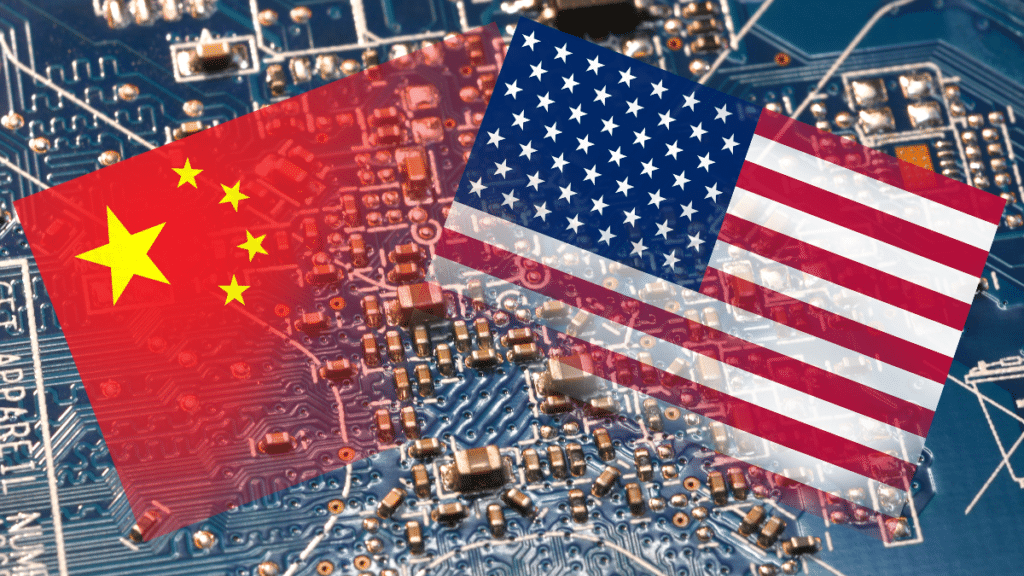Shocking Reversal: Nvidia H20 AI Chip Export - CoinStats
For cryptocurrency enthusiasts and tech-savvy investors, the geopolitical landscape surrounding AI technology is becoming increasingly relevant. The infrastructure that powers the decentralized web and innovative blockchain projects is deeply intertwined with advancements in artificial intelligence and the hardware that drives it. The latest twist in the ongoing US-China tech rivalry involves a surprising decision regarding Nvidia H20 chips and their export to China, a move that could have significant ramifications for the global tech ecosystem and potentially, the future of decentralized technologies.
A Surprising Turn of Events
In a surprising turn of events, it appears Nvidia CEO Jensen Huang has navigated a complex geopolitical situation to secure a temporary reprieve for the export of Nvidia H20 chips to China. Initially expected to face stringent export restrictions, similar to other advanced AI chips, the H20 now seems to have been spared, at least for the time being. This development has sent ripples through the semiconductor industry and raised eyebrows among policymakers and industry analysts alike. But what exactly transpired to cause this sudden change of course?

The Reported Agreement
According to reports from NPR, the apparent shift in policy can be traced back to a dinner meeting between Jensen Huang and former President Trump at Mar-a-Lago. During this meeting, Huang reportedly proposed a deal: in exchange for continued export of Nvidia H20 chips to China, Nvidia would significantly invest in building new AI data centers within the United States. While Nvidia has declined to officially comment on these reports, the alleged proposal highlights the complex interplay between national security concerns, economic interests, and corporate strategy in the age of AI dominance.
Complex Implications
The decision to potentially exempt Nvidia H20 chips from stricter AI export controls is particularly perplexing given the broader context of US policy. The Biden administration, before leaving office, implemented a comprehensive set of rules aimed at limiting the export of advanced AI chips to nearly every country outside the US, with especially harsh restrictions targeting China and Russia. These rules were designed to safeguard US technological leadership and national security by preventing adversaries from accessing cutting-edge AI hardware. Nvidia itself has criticized these export guidelines, labeling them “unprecedented and misguided” and warning of their potential to stifle global innovation.
Strategic Positioning
These substantial investments in US AI data centers underscore a broader trend of tech companies strategically positioning themselves within the evolving geopolitical landscape. The promise of domestic investment and job creation can be a powerful bargaining chip when navigating complex regulatory environments and seeking favorable policy decisions.

Considerations and Consequences
The decision to potentially allow continued Nvidia H20 chip exports to China in exchange for US data center investment is a complex calculation with potential benefits and risks. On one hand, securing significant investment in domestic AI infrastructure strengthens the US’s technological base and creates jobs. On the other hand, allowing China continued access to advanced AI chips, even if slightly less powerful versions, could fuel their AI development and potentially erode the intended impact of export controls. The long-term consequences of this apparent deal remain to be seen, and its effectiveness in achieving US AI dominance will be closely watched by the semiconductor industry, policymakers, and indeed, the global tech community.
Implications for the Tech Community
For those in the cryptocurrency and blockchain space, this situation highlights the interconnectedness of global technology policy and the future of decentralized innovation. The hardware that powers AI also underpins much of the infrastructure for blockchain networks and AI-driven crypto projects. Understanding these geopolitical dynamics is crucial for navigating the evolving landscape of digital assets and decentralized technologies.



















